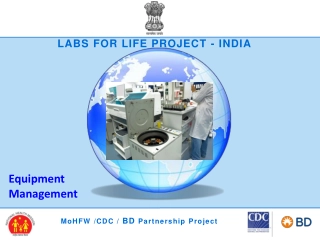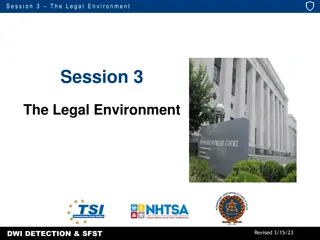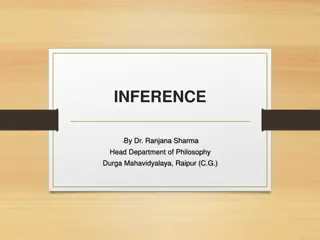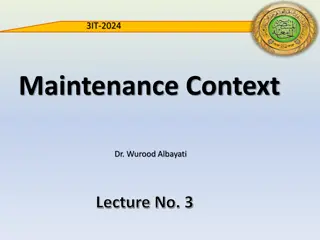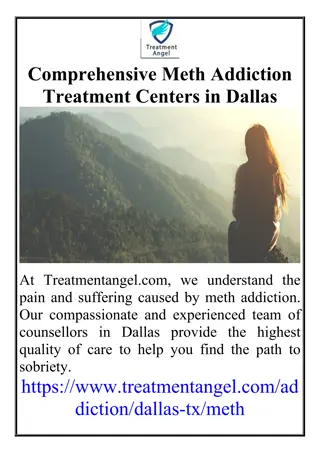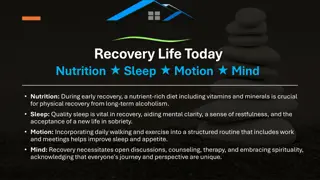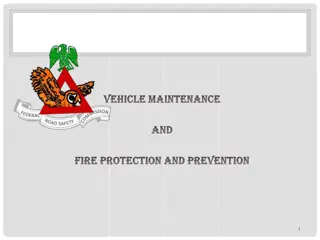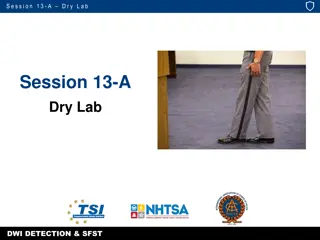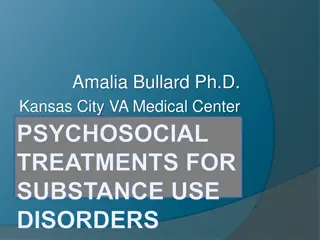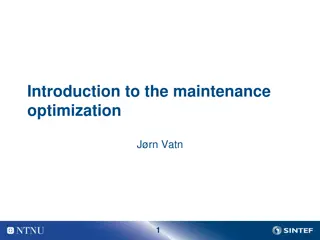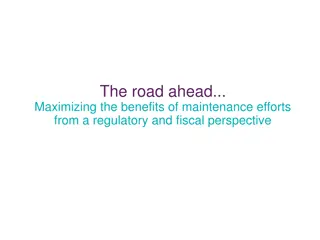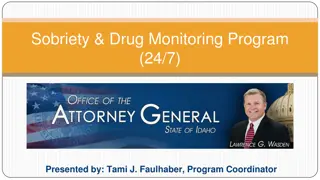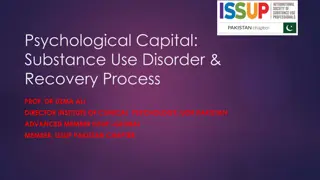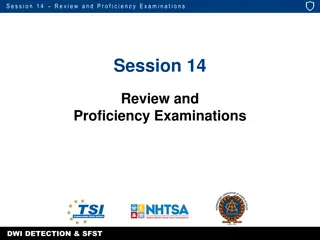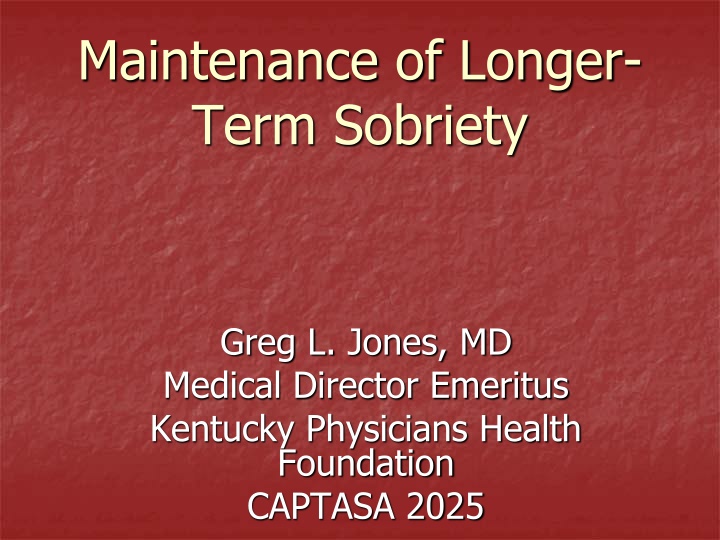
Longer-Term Recovery for Sustainable Sobriety
Dive into the essence of longer-term recovery, exploring its impact, markers, and characteristics. Discover the significance of continued efforts and professional monitoring in achieving sustained sobriety beyond the common one-year milestone.
Download Presentation

Please find below an Image/Link to download the presentation.
The content on the website is provided AS IS for your information and personal use only. It may not be sold, licensed, or shared on other websites without obtaining consent from the author. If you encounter any issues during the download, it is possible that the publisher has removed the file from their server.
You are allowed to download the files provided on this website for personal or commercial use, subject to the condition that they are used lawfully. All files are the property of their respective owners.
The content on the website is provided AS IS for your information and personal use only. It may not be sold, licensed, or shared on other websites without obtaining consent from the author.
E N D
Presentation Transcript
Maintenance of Longer- Term Sobriety Greg L. Jones, MD Medical Director Emeritus Kentucky Physicians Health Foundation CAPTASA 2025
It does not matter how slowly you go as long as you do not stop. Confucius
I believe the most important word in the 12 Steps is Continued. Don M. Louisville, KY
Repetition, repetition, repetition! Burns B. One of the founders of the CAPTASA Conference
I was fortunate to be one of those hundreds of doctors he helped. I owe my life and career to him. He gave me the gift of hope when I had little, but most of all he gave me a simple and clear message and program. He didn t meet me where I was, he gave me a hand up to where he had been brought by the program of Recovery he practiced daily. He made no room for alternatives nor pulling punches for the difficult work ahead. And it worked just as he had told me it would.
Learning Objectives Review what Longer-Term Recovery looks like to those experiencing it. Review practices and behaviors common in those successful in Longer-Term Recovery. Develop a Recovery checklist for use in helping clients and patients.
What is Longer-Term Recovery? How Long is Longer? Is it just not drinking or using? Impact on the person in Recovery Impact on others and society Markers and characteristics
How Long is Longer? If you Google it, most results say 1 year or longer. While it s certainly true we only get a day at a time, I feel most of us in Recovery think longer than 1 year. 1 Year is important though! Professional monitoring programs usually follow folks 5 years. I think there s value in that.
Is it just not drinking or using? I don t think anyone I know in Longer- term sobriety would think so. Most would consider chemical sobriety a minimum and point to other changes in their lives, spiritually, mentally and physically. But not drinking or using other intoxicants is really, really important.
What folks in Longer-Term Recovery do They develop a spiritual life, that works for them. They do daily maintenance They become accountable They gather with others They help others They don t put intoxicants into their bodies Nor substitute other behaviors in place of intoxicants
Examples Prayer and meditation, hopefully daily Regularly attend Recovery meetings Work the 12 Steps with a sponsor Sponsor others
AlcoholismTreatment: A Ten- Year Follow-Up Study Alcoholism Clinical and Experimental Research/ Vol. 14, Issue 2, p. 169-173 April 1990 Gerald Cross, Charles Morgan, Al Mooney, III, Carolyn Martin and John Rafter. From Willingway Hospital, Statesboro, Georgia If you can find a longer follow up study of anything related to Addictive Disorders, please let me know.
What did they find? 200 patients were selected for the study. 158 usable responses. Overall reply rate of 80%. Of those usable responses, 61% reported complete and sable remission for at least 3 years prior. Involvement in AA predicted abstinence Those who continued to sponsor others report 91% ten year remission.
What one expert said- Residential treatment that fully addresses addiction Easier softer ways wouldn t have worked for me. Really good 4th Step early on to eradicate secrets and demolish isolation Go to lots of meetings and become a genuine member of a community again Do all the things your sponsor asks of you as best you can
And When (not if) tragedy strikes- an instant reaction of reaching for your Higher Power, sponsor, friends in the program instead of the bottle Perhaps the most important inflection point is when the person WANTS to be in Recovery and is HAPPY, they re in the Program
Another expert (my sponsor) said My morning readings, Daily reflections, affirmations, Keynotes and meditaion on my front porch. Read the Big Book Go to lots of meetings and meet with friends in the program
The Man who taught me how to treat Addiction and take care of folks when things weren t going well for them. When I came into AA at age 24, I remember thinking that if I lived to 74 then I would have 50 years of sobriety and be more sober than God! Oh Ye of little humility.
Miraculously that time is 3 years away yet it feels as distant as it felt 47 years ago. Sometimes I wonder if I have gotten any better at all. I had a sponsor who told me that we never really change it s just that the craziness in our heads just doesn t make it to the outside as long as we stay sober. The people in AA that I admired the most were the ones who talked openly about their insane thinking.
That has become one of my mantras, my sobriety is dependent on how honest I am, particularly in meetings. There is a tendency to put old-timers on a pedestal, and my ego wants me to stay there. So, sitting across from someone who is new, it is easy to focus on sharing the wisdom accumulated over the years.
Over time it becomes harder to be honest about my own insanity. Unless I can remain rigorously honest I will inevitably become so uncomfortable with those around me I will gradually disappear. My life is dependent upon my sobriety and my sobriety is dependent on my willingness to be honest with you about me.
Published author and Addiction Expert I d say Meetings. Sponsoring guys. Not taking myself too seriously. Gratitude. Yes, I said that.
Another friend. Weve been sober the same number of years. I make sure I go to meetings. Have an open and honest relationship with a group of men in Recovery. A little bit of my own issue, get regular physical activity, helps my mood and makes me easier to get along with.
My routine Morning readings and prayers. Preferably outside. Check in with my sponsor and a few other guys in the program. Meetings, at least 3 a week. More if I m busy and have challenges. I do a Zoom weekly, but most are in person Go to a local treatment facility and read the Big Book with the guys there weekly. Nighttime Bookend prayers and review.
So, a brief checklist Avoiding intoxicants and behaviors that can substitute Going to meetings with others on the journey Being honest A spiritual routine that makes sense to you Help others
Sobriety adds years to your life and life to your years. That s been my experience too.


